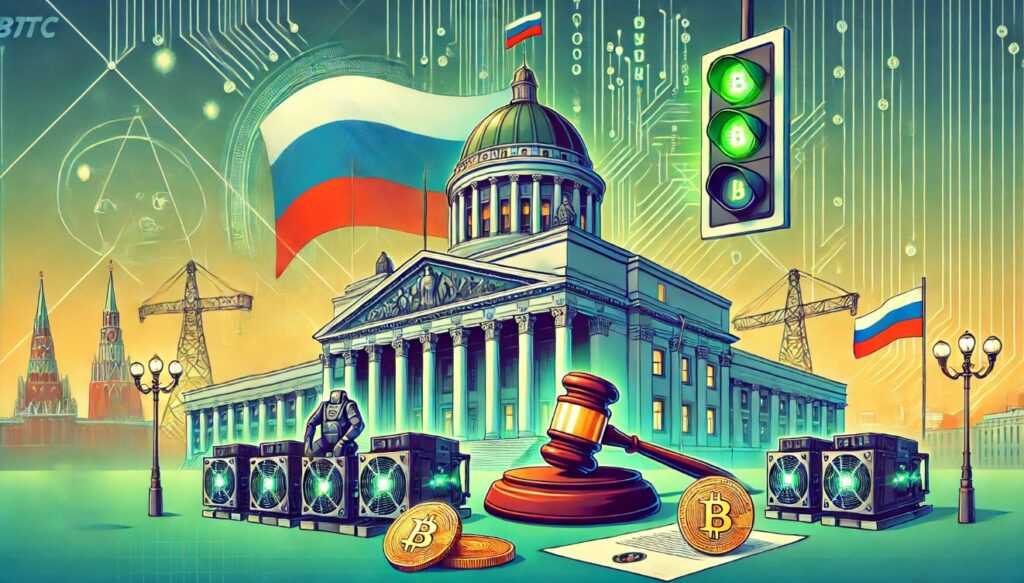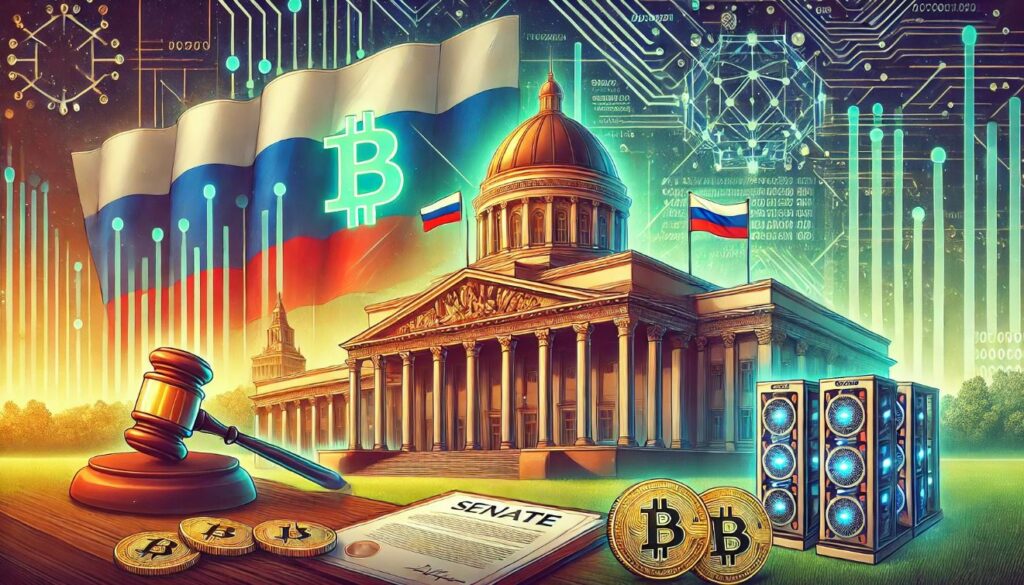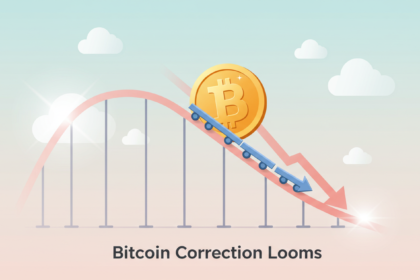The Russian Senate has taken a significant step by approving the draft Russia Crypto Mining Law. This landmark legislation is now set to become law, pending the signature of President Vladimir Putin. While this news has been met with a mixed response from the Russian Bitcoin (BTC) mining community, it marks a pivotal moment for the industry.

Russian Senate OKs Crypto Mining Bill – What Happens Next?
According to Vedomosti, the Federation Council approved the Russia Crypto Mining Law, alongside another bill concerning “experimental foreign trade settlements” in cryptocurrency. The new law allows both “legal entities” (industrial mining firms) and “sole proprietors” (individual miners) to mine crypto, provided they register on a national list.
This development comes as a huge relief to small-scale, home-based miners. The law permits individuals to mine tokens as long as they stay within energy consumption limits set by the government. Additionally, the government retains the right to impose bans on mining in regions with energy deficits.
Politicians expect President Putin to sign off on the laws, which are bundled into a package of hundreds of other legal changes, early this week. The media outlet and others noted that the Russia Crypto Mining Law should “enter into force on September 1, 2024.”

Years of Uncertainty for Miners
Miners have been pleading with Moscow to legalize their industry for several years. However, a political impasse has left them in a state of legal limbo. Intensive lobbying earlier this year and power shortages in certain Russian Bitcoin mining hotspots appear to have finally broken the deadlock.
Last month, President Putin announced the “urgent need” for legislative regulation of cryptocurrency mining. He noted that “uncontrolled growth” in electricity consumption for crypto mining “could lead to power shortages in certain regions.” This statement prompted the State Duma to fast-track the Russia Crypto Mining Law, with its second and third readings passed on a single day, July 30.
Not All Miners Are Happy
While the Russia Crypto Mining Law provides legal definitions for terms such as “mining” and “mining pools,” and triggers the creation of a second register of “mining infrastructure operators” under the Ministry of Digital Development, not all miners are content. The law bars electrical power companies from directly launching their own crypto mining operations and obliges miners to report all earnings to the tax body, providing details of all their crypto wallet addresses.
Crucially, both Russian miners and mining pools must sell coins “without using Russian infrastructure,” forcing them to sell on international crypto exchanges. This aspect of the Russia Crypto Mining Law has raised concerns about potential sanctions from US and Western governments on trading platforms that do business with Russian miners.
Some miners view the law as a breakthrough, with others labelling it a “historic event” or an “important government decision.” However, many are apprehensive about the law’s implications. PR and Communications Director Mike Lvov of the mining specialist firm EMCD Tech expressed concern about the “registries” and “providing full reporting on cryptocurrency mining activities.” He questioned the handling and processing of this data and the lack of clear answers regarding its use.

Sanctions and Energy Concerns
The Russia Crypto Mining Law has sparked fears of prohibitive energy price hikes. Fedor Ivanov, Director of Analytics at crypto security provider Shard, warned that the new regulation needs to start working effectively before any tariff discussions. He believes that simply raising tariffs is an ill-considered idea and that pressure on large industrial miners would reduce Russia’s attractiveness in the crypto sphere. Ivanov also noted that such measures would not solve the problem of home miners and illegal connections to power grids.
Most observers believe that Bitcoin accounts for the majority of the Russian crypto mining mix, with over 90% of miners focusing their efforts on BTC. The Russia Crypto Mining Law’s requirement for miners to sell their coins internationally may complicate operations for many.
Despite these challenges, some Russian media outlets suggested that a national exchange infrastructure could be launched in the months ahead. This would potentially alleviate some of the concerns raised by the Russia Crypto Mining Law.
Conclusion
The approval of the Russia Crypto Mining Law marks a significant milestone for the country’s crypto mining industry. While the law offers a regulatory framework that many miners have long awaited, it also introduces new challenges and uncertainties. The law’s impact on energy prices, the handling of miner data, and the requirement to sell coins internationally are all critical issues that the industry will need to navigate.
As the law comes into force on September 1, 2024, the mining community will closely watch how these regulations unfold and their implications for the future of Bitcoin mining in Russia. Addressing these concerns will be crucial for ensuring the long-term viability and sustainability of the crypto mining industry under the new Russia Crypto Mining Law. Stay tuned for more updates on this evolving story on The Bit Journal


























